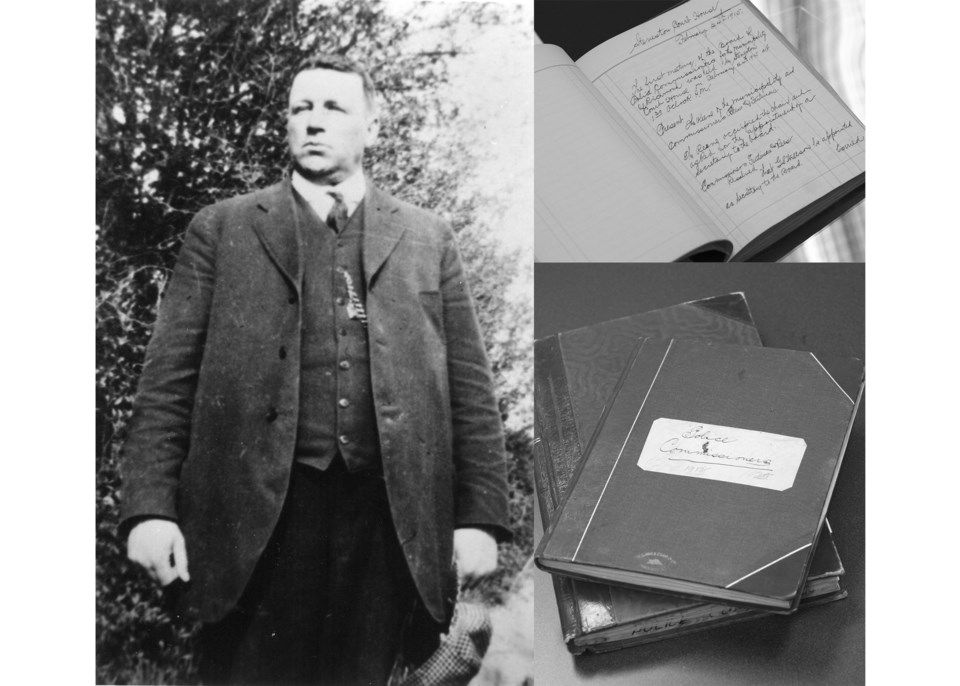It was a quiet year for police.
Officers responded to just one report of breaking-and-entering, a handful of petty thefts and some violations of the Lords Day Act for working on Sunday. There were few deaths — except for those on Nov. 11, 1916.
That night, the Richmond Police Force was called into action on the north arm of the Fraser River. The small, fledgling municipal force started work just a year earlier — a century removed from the current debate of leaving the RCMP to re-establish a municipal force in Richmond.
At 7 p.m. George Smith drove his bus toward the open North Arm drawbridge. He didn’t stop. The bus smashed through a gate and plunged into the cold river.
Police and others raced to the scene to help. Three passengers were saved but nine people died, including Smith. Most of the bodies weren’t recovered.
At the time, it was the worst motor vehicle accident in the region’s history, according to a report in the Victoria newspaper The Daily Colonist, and certainly the most serious call the Richmond Police Force had answered.
In 1915 Richmond’s population was nearing 5,000, prompting a shift in policing models. The community demanded a department with greater oversight than what it was used to: council-appointed constables patrolling the streets.
Enter the Board of Police Commissioners, a body created by council and chaired by the mayor, which marked the start of 25 years of a municipal police force. The board reviewed reports from the police chief on crime and police activities, and also heard complaints from citizens.
In those years police dealt with many matters, including those far removed from the big cases of TV dramas. In his first annual report to council, police chief Andrew Waddell didn’t exactly raise eyebrows.
“No cases of a serious nature have been committed, the majority having been petty thefts, assaults, offences against the Indian Act, gambling, cruelty to animals, violations of the Motor Vehicle Traffic Regulations and the Game Act,” he told council on Jan. 3, 1916, according to handwritten council minutes preserved at the City of Richmond Archives.
“A great number of undesirables have been brought before the court and the municipality freed of them. The most serious cases were six of theft which I am pleased to report were all convicted.”
The police board heard complaints of everything from vehicles speeding near schools and cyclists riding without lights to calls for more stop signs and requests to crack down on liquor being smuggled into school dances at Cambie Gym.
In the Depression years, the board heard of illegal cigarette sales, stolen chickens and pricey prisoners’ meals. Board members also urged police to follow municipal staff and cut salaries, and local cops obliged. The chief agreed to donate $5 per month to a relief fund, while constables would fork over $4.
Cases of police misconduct are also found in the board’s minutes. In 1935, Const. H. Tims was called onto the carpet for “certain alleged irregularities in the collection of trades licences.”
Tims submitted his resignation, but the board refused to accept it, firing him instead and demanding the immediate return of his equipment.
In the final year of the force, police responded to an average of 37 calls per month. Officers also made five arrests each month, on average.
In 1940, the province lured Richmond to a B.C. police force at a lesser cost. Richmond agreed to pay $9,200 annually for the service — 25 per cent less than the municipality spent on policing that year.
The switch was made in 1941 but didn’t last long. The RCMP took over in 1950.
Today, city council is mulling a return to a municipal force.
Coun. Bill McNulty, chair of council’s community safety committee, said he’s waiting to see details on the cost.
Other cities are watching closely. McNulty noted if Richmond made the switch it would be a first in Canada.



